Copyright © Everyday Narrative 2024. All rights reserved.
Copyright © Everyday Narrative 2024. All rights reserved.
- An Everyday Narrative Gallery Special -
1. Fennec Fox
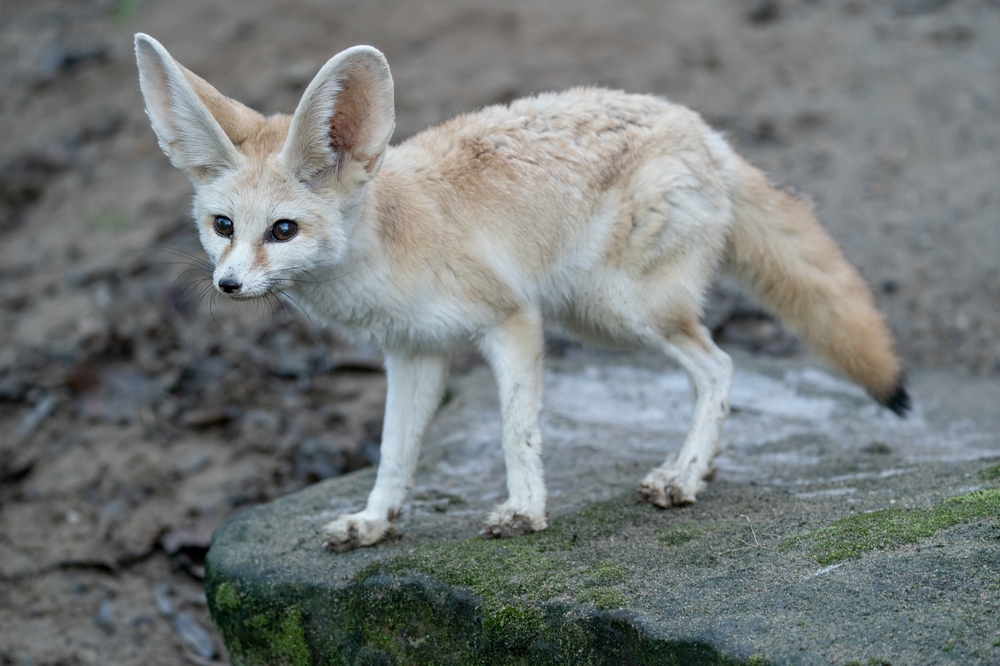
The fennec fox is one of the smallest members of the fox family, native to the deserts of North Africa. With their oversized ears and adorable, curious expressions, these foxes are highly unique and visually striking.
Despite their wild origins, fennec foxes can bond well with humans when raised in captivity. They are playful and energetic, but their nocturnal habits can be a challenge for some pet owners. These tiny foxes require a specialised diet and ample space to run and dig, replicating their natural desert environment. They are legal in select states but often come with strict ownership regulations.
2. Capybara
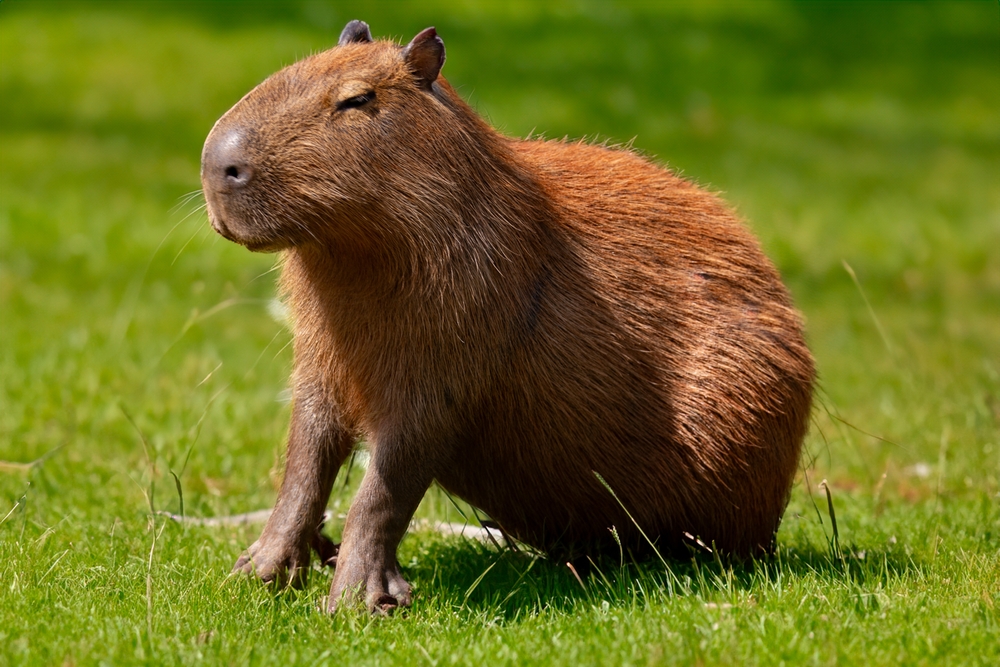
Known as the world’s largest rodent, capybaras are native to South America and are semi-aquatic animals that thrive in groups. They have become increasingly popular as exotic pets due to their gentle and social nature. Capybaras are friendly and can bond with humans, but they do require a substantial amount of space and access to water for swimming.
These unique creatures are best kept in pairs or small groups to satisfy their highly social behaviour. Capybaras need specialised care, including a diet rich in grasses and vegetables, and are legal in only a few states, such as Texas and Pennsylvania.
3. Kinkajou
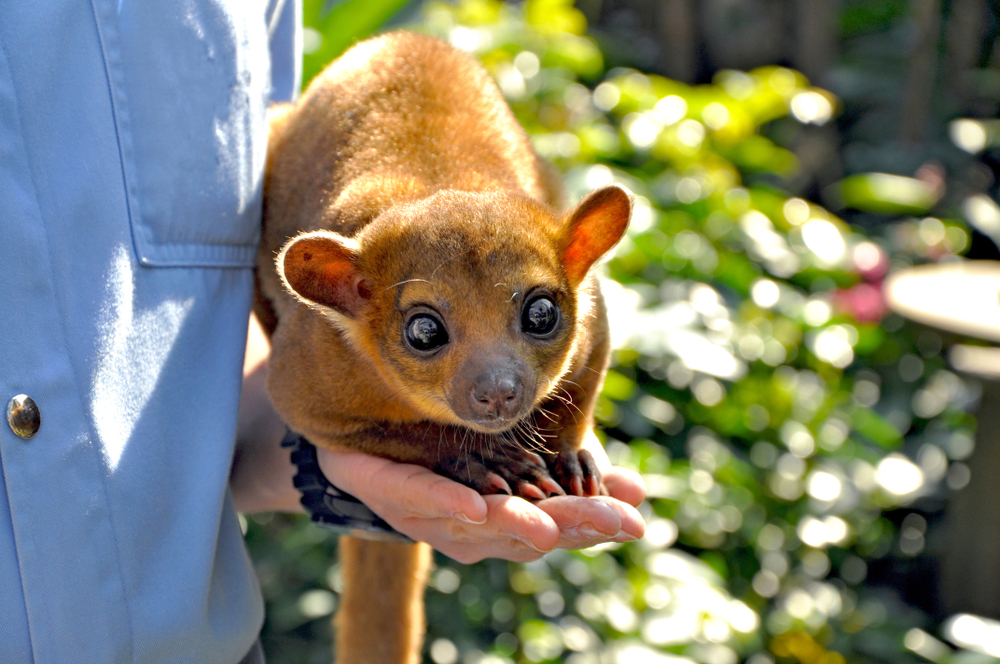
The kinkajou, sometimes called the ‘honey bear’, is a small, nocturnal mammal native to the rainforests of Central and South America. With their prehensile tails and sharp claws, they are natural climbers, spending most of their time in trees. Kinkajous are curious, and playful, and enjoy interacting with their human caretakers.
However, as nocturnal creatures, they are active at night, which can be a consideration for potential owners. They require a diet rich in fruits and nectar and benefit from a complex environment that allows them to climb and explore. Kinkajous are legal in some states, but their exotic nature makes them challenging pets.
4. Serval
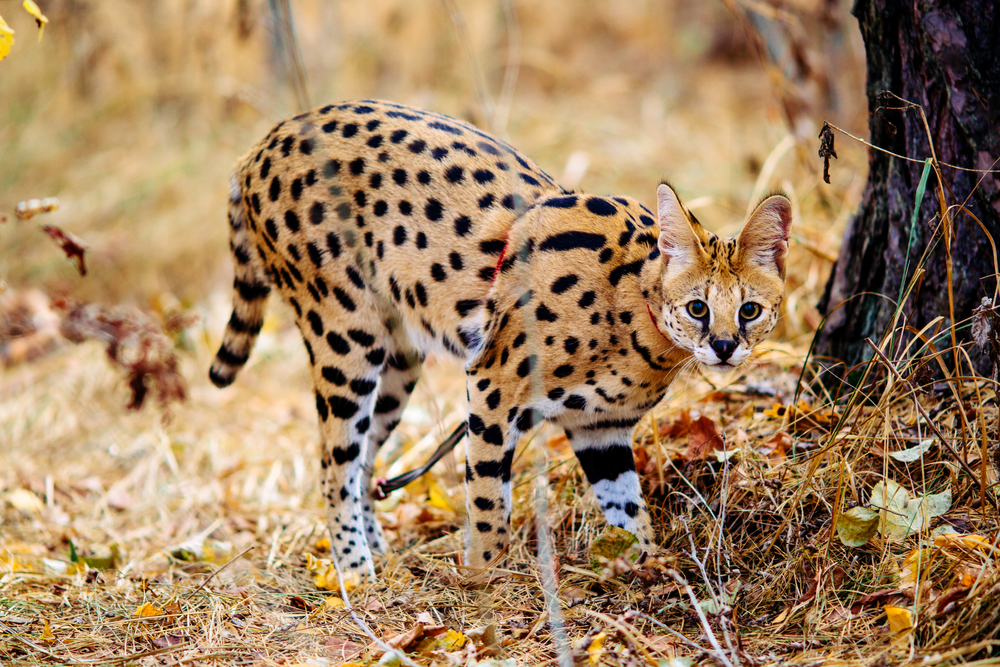
The serval is a wild cat native to Africa, known for its striking appearance—long legs, large ears, and a beautifully spotted coat. These cats are known for their incredible jumping ability and their highly active, inquisitive nature. While some people keep servals as pets, they require large, secure outdoor enclosures to mimic their natural environment.
Servals also require a raw meat diet to stay healthy. Owning a serval is a significant commitment, as they retain many of their wild instincts. They are legal to own in some states with permits, but potential owners must be prepared for their high energy and specific care needs.
5. Wallaby
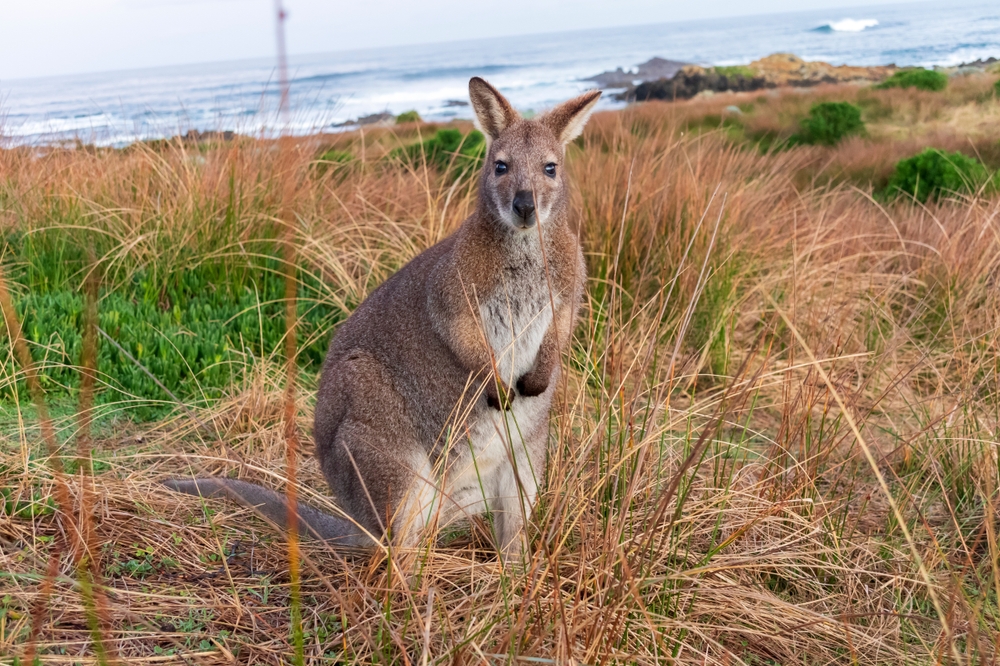
Wallabies are small relatives of kangaroos, and their unique hopping movement and gentle demeanour make them stand out as exotic pets. Native to Australia, wallabies are herbivorous animals that need plenty of space to roam and forage. They can form strong bonds with their owners but are still largely wild animals at heart, making them best suited for outdoor, farm-like settings.
Wallabies are social animals and benefit from interaction with either other wallabies or human companions. Their care includes a diet rich in grass, hay, and specialized pellets, and they are legal in some states with the appropriate permits.
6. Axolotl
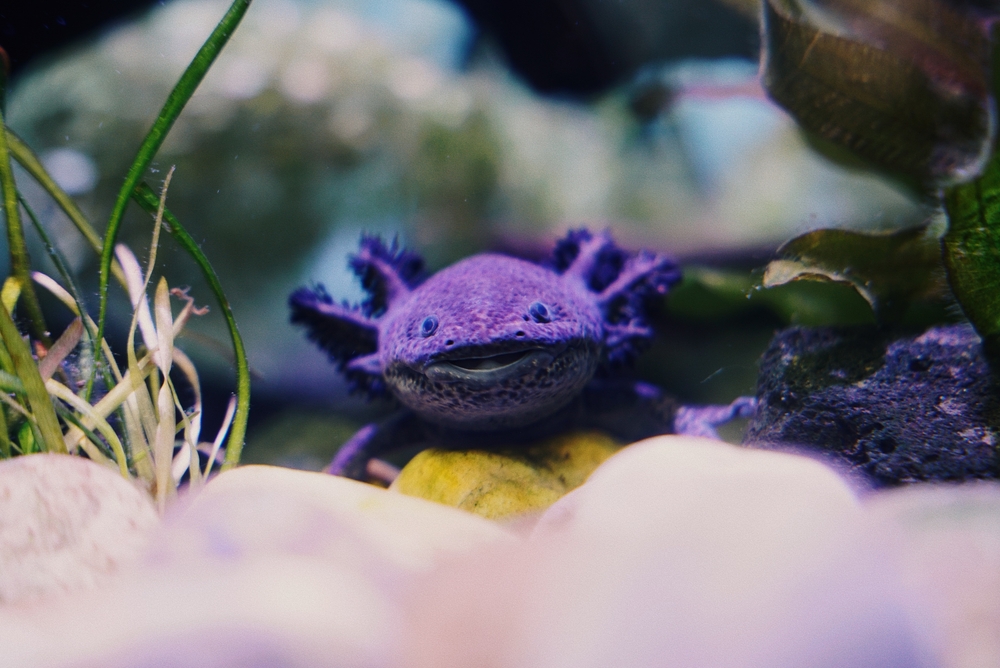
The axolotl, an aquatic salamander native to Mexico, is one of the most unique pets due to its incredible regenerative abilities and the fact that it remains in its larval stage throughout its life. Axolotls have distinctive frilled gills and come in a variety of colours, making them visually fascinating.
These animals are entirely aquatic and require a carefully maintained tank environment with the correct water temperature and PH. Their diet consists of worms, small fish, and specialized pellets. Axolotls are legal in most states, though they are restricted in places like California and New Jersey due to concerns about their environmental impact.
7. Pygmy Goat
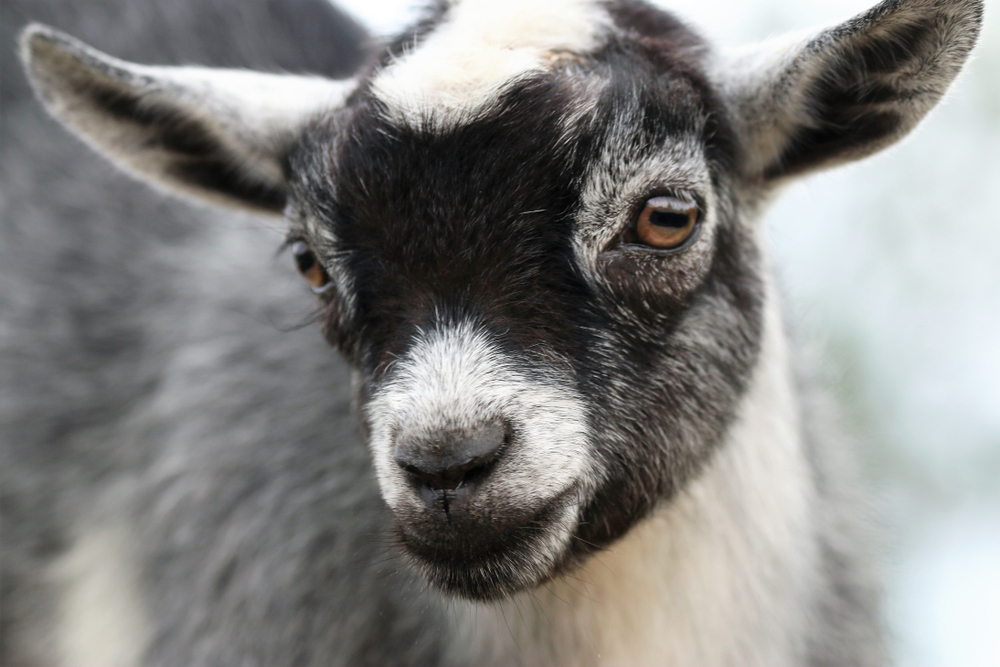
Pygmy goats are miniature versions of traditional goats, known for their playful, friendly personalities and adorable appearance. They are highly social animals and thrive on interaction, making them a unique choice for those looking for an interactive and energetic pet.
Pygmy goats need plenty of outdoor space to roam and graze, and they do well in pairs or small groups to prevent loneliness. These goats also require regular grooming and hoof care. They are legal in many states but can be restricted in urban areas due to livestock regulations. Pygmy goats are perfect for those with room to accommodate their active lifestyle.
8. Skunk
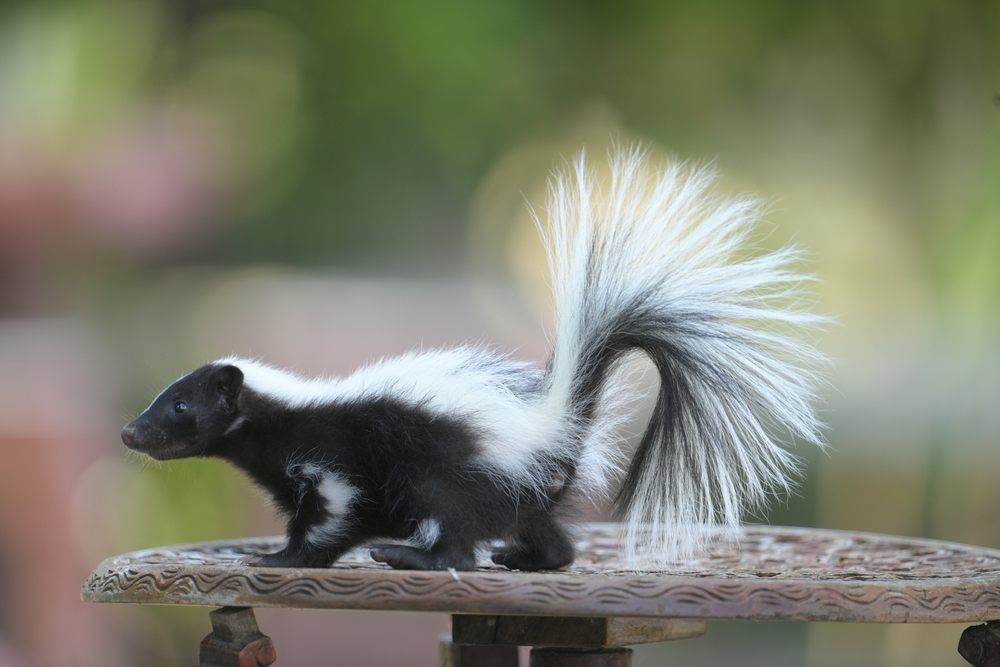
Domesticated skunks, with their scent glands removed, have become surprisingly popular pets for those seeking a unique and quirky companion. Skunks are curious, intelligent animals that can be affectionate and form strong bonds with their owners. They require a varied diet that includes fruits, vegetables, and proteins to stay healthy.
Skunks are nocturnal and need socialization and plenty of stimulation to prevent boredom. While they are legal in some states, many places require permits or have outright bans on keeping skunks as pets. Their playful and curious nature makes them an interesting but high-maintenance exotic pet.
9. Savannah Cat
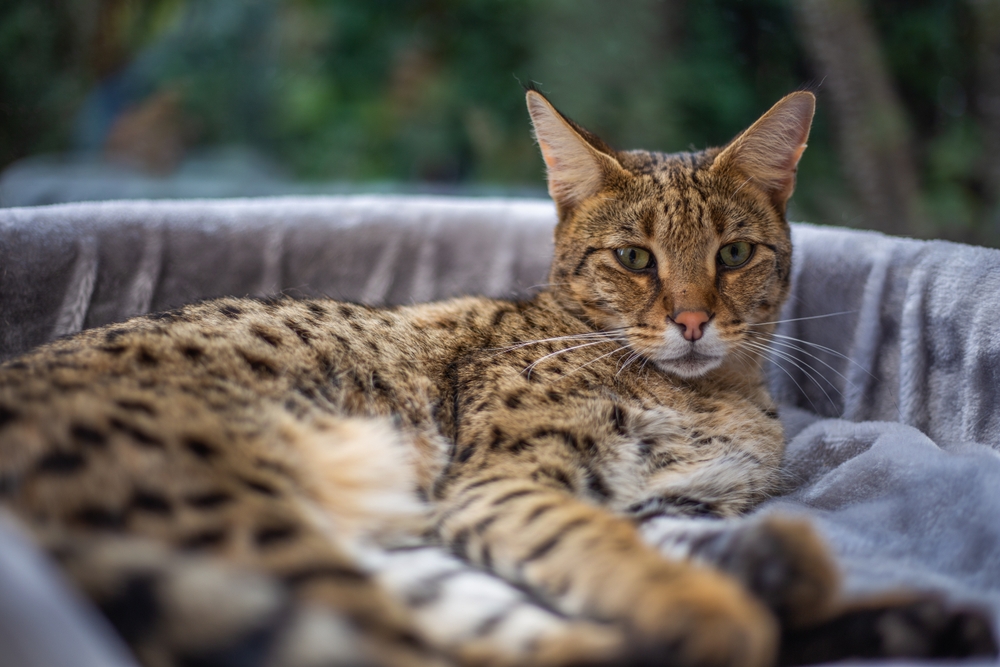
Savannah cats are a hybrid between a domestic cat and a serval, resulting in a stunningly large, agile, and energetic pet. These cats have a wild appearance, with long legs, large ears, and beautiful spotted coats.
Savannah cats are incredibly intelligent and loyal, often displaying dog-like behaviours such as fetching and walking on a leash. They require a large, enriched environment and a diet similar to that of wild cats, which can be demanding for some owners. While legal in some states, Savannah cats are restricted or banned in others due to their wild ancestry and potential for high energy and activity levels.
10. Hyacinth Macaw
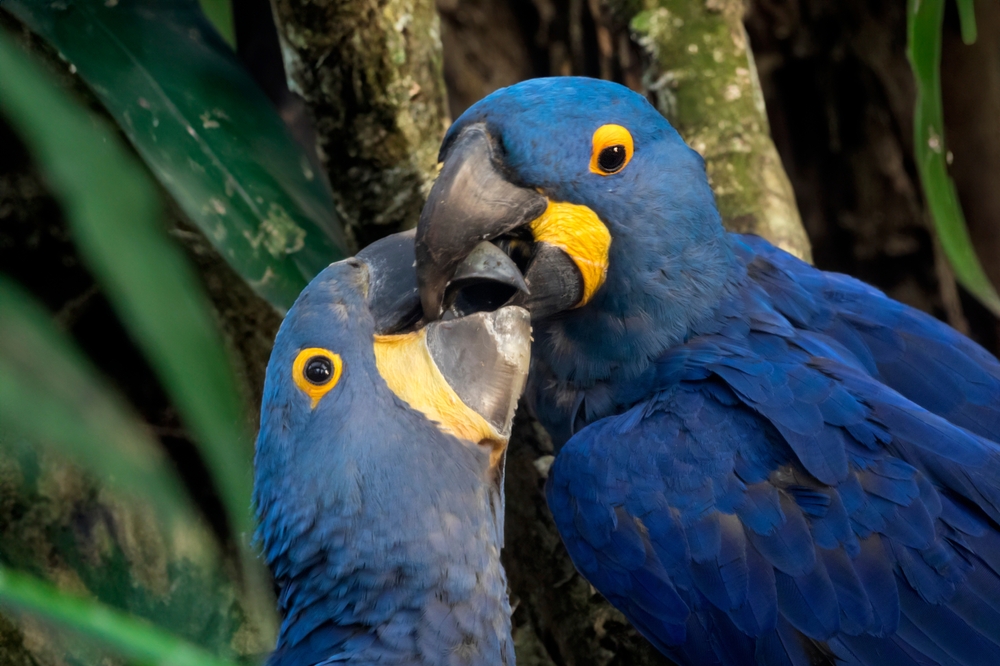
The hyacinth macaw, the largest species of parrot, is known for its striking cobalt-blue feathers and powerful beak. These parrots are not only beautiful but also highly intelligent and social, often forming deep bonds with their owners.
However, hyacinth macaws require significant attention, mental stimulation, and space to thrive. They need large enclosures, a diet rich in nuts and fruit, and plenty of toys to prevent boredom. Their intelligence and emotional depth make them incredibly rewarding pets, but they also demand a lot of care. They are legal in most states, though their size and vocal nature may pose challenges in some areas.
Unique Pets In The USA
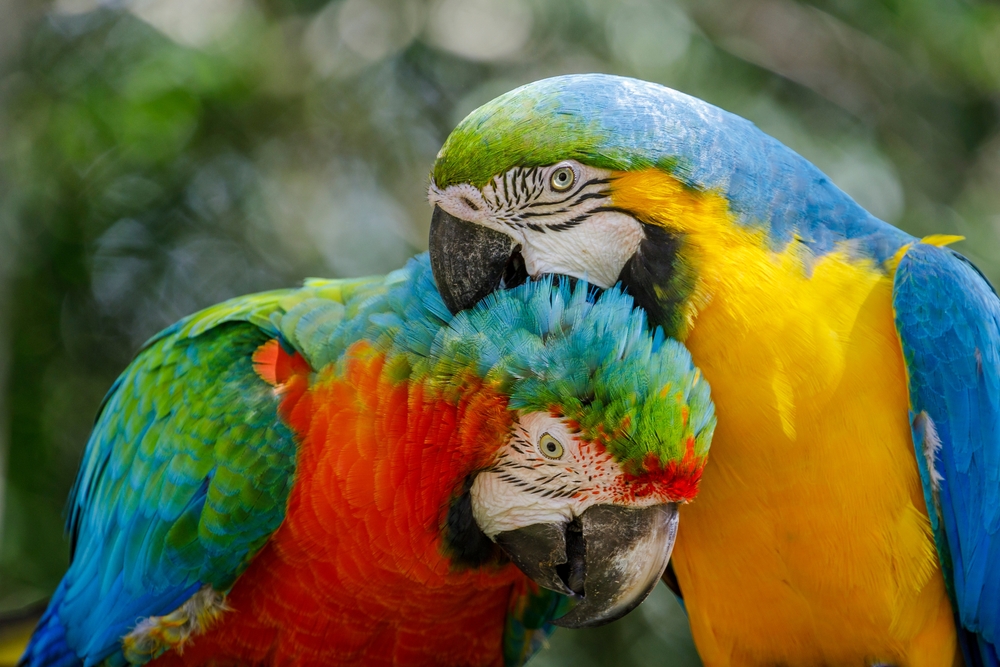
These unique pets offer a fascinating alternative to traditional pets, but each comes with its own set of challenges. From specific dietary needs to larger enclosures and socialisation, owning an exotic pet is a significant commitment.
However, for those willing to meet their demands, these animals can provide an unparalleled experience filled with beauty, intelligence, and deep bonds.
Gallery Specials
Latest Articles
- Disney Remakes the Timeless Classic ‘Snow White’
- Here’s what to expect from Season 4 of Slow Horses, only on Apple TV+
- Marvel’s ‘Agatha All Along’ coming soon
- Adam Sandler Announces ‘Happy Gilmore 2’
- Jennifer Lopez files for divorce from Ben Affleck to end her fourth marriage
- On this day in 1995, the Battle of Britpop reached its climax
- Vince Vaughn Returns in the New Dark Apple TV+ Comedy ‘Bad Monkey’
- Matt Damon and Casey Affleck lead a star-studded cast in ‘The Instigators’
- The anticipation builds for ‘The Last of Us’ Season 2
- Has Simone Biles cemented her place as the greatest American Olympian of all time?
- Anticipation grows for the Disney sequel ‘Moana 2’
- A battle begins at Royal Troon for The Open Golf Championship 2024
- The evolution of binge-watching
- Tom Hanks reunites with Robin Wright in ‘Here’
- Taylor Swift’s ‘Eras Tour’ is a phenomenal success















